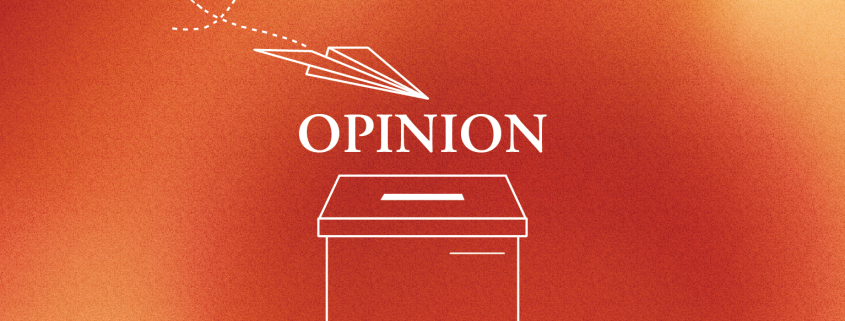Modern love in modern times
I’ve always hated the phrase “just friends” and how it implies that friendship is somehow inferior to “romantic” love. The ancient Greeks actually distinguished four types of love: eros (romantic, erotic love), philia (love of friends and equals), storge (love of parents for children) and agape (love of mankind). However, while love comes in many forms even outside what the Greeks defined it as, eros has come to largely dominate our imagination as the standard of love.
Just ask yourself: When was the last time you talked about your love for your parents with your friends? Now, when was the last time you talked about that horrible Tinder date you went on? Or your dining hall crush? We even have an Instagram account called “USC Missed Connections” for people to post about their campus crushes.
Romantic love as a human emotion has been around since time immemorial. Our ancestors have probably felt the same dopamine, oxytocin, norepinephrine and all the other chemicals that our brain releases to give us the giddy and euphoric feeling we describe as being “in love.” While the feeling of romantic love may be similar across time and place, the narrative surrounding love has always shifted to reflect the economy and culture of the times.
Throughout most of human history, love and marriage have been interlinked even though this connection came from mere coincidence. Many marriages in the past were appointed by the elders in the families and the young newlyweds did not have a say whatsoever in their marriage.
This practice is still prevalent in many parts of the world today, wherein love only comes after marriage, as a product of convenience or luck. These cases don’t come into the center of our attention because they don’t fit the predominant narratives around love and marriage in Western culture. Just ask your grandparents about their love story and you will most likely not find yourself in total agreement with it, just like how they are likely not to approve of the hookup or dating app culture of our generation.
To borrow the words of New Yorker writer Alexandra Schwartz, whether it is the “monogamy of the booming postwar” ’50s, the “free love” of the ’60s, or the “greed is good” ’80s, society’s obsession with romantic love has not ceased no matter how the narratives around it changed in the modern era. In the capitalist, consumerist era of our own, love is forever for sale, and dating is what closes the deal. We turn ourselves into commodities, only drifting into long-term commitments reluctantly, perhaps in pursuance of the standing social norm of settling down and getting married. Dating is a social engineering tool that our society uses to bend us to fit its romantic design.
However, with same sex couples’ rights being increasingly recognized (although the battle is far from over) and new forms of love being introduced to the public imagination, such as love between humans and artificial intelligence, as depicted in movies such as “Her” (2013) or “Blade Runner 2049” (2017), our definition of love is already beginning to expand. We need to remember that romantic love and the forms we traditionally associate it with, such as monogamy and heterosexuality, occupy only a very small segment of that special emotion of love.
With the vast majority of Gen Z today not wanting to get married, the shift away from romantic love is already beginning. According to statistics from the U.K.’s Office of National Statistics, only one in six people today believe in “the one” and one in seven people will be living alone by 2039.
So the next time you are questioning the whole obsession with dating culture and feeling like, “Oh man, this really is a lot of work” (particularly for women) — all that grooming, exercising, primping and courting, alongside other tangible investments such as money and mental health — remember that it is okay to not be a part of that culture, and remind yourself of your love for your friends, family, pets or even your Siri. Hey, that’s okay too.

